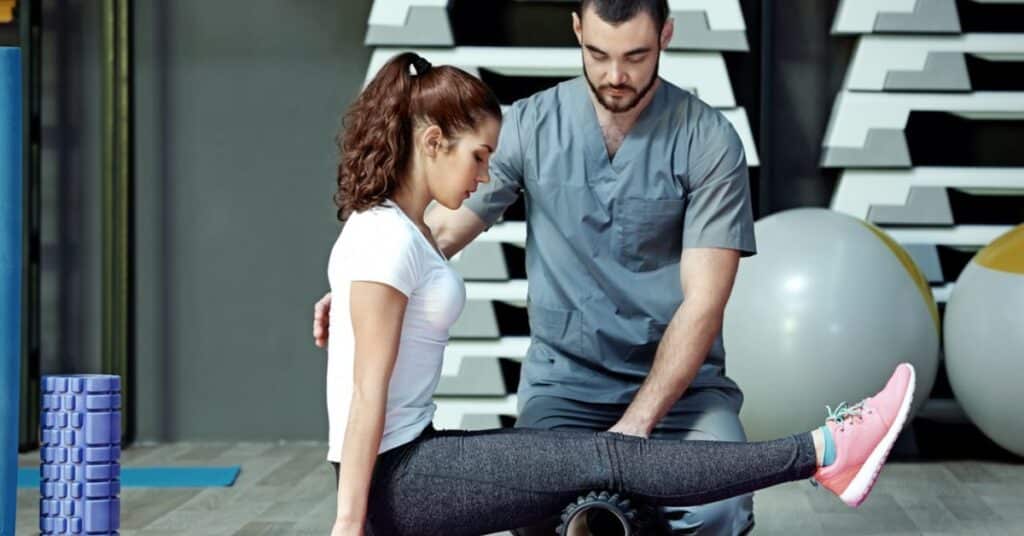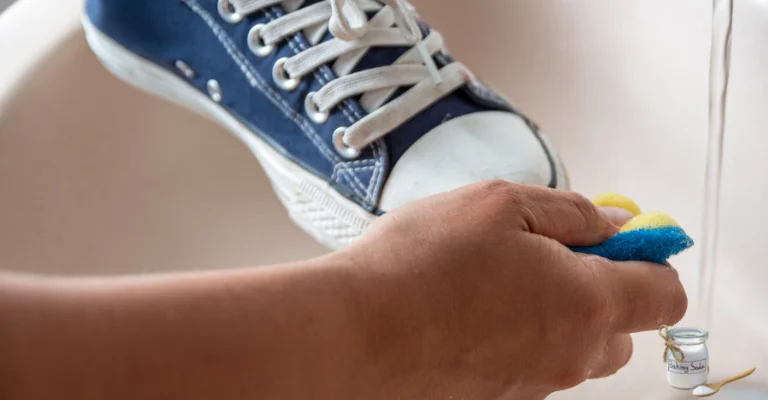10 Burning Questions: Do They Check Your Private Parts in a Sports Physical?
Are you curious about what happens during a sports physical? Find out if they Check Your Private Parts in a Sports Physical and get all the answers to your burning questions in this informative blog post.
What is a Sports Physical?
It, also known as a pre-participation physical examination (PPE), is a medical evaluation assessing an athlete’s health and fitness level before participating in organized sports.
It involves a thorough inspection by a healthcare professional to determine if the individual is physically capable of participating safely.
The Importance of Sports Physicals
Physical physicals are vital in ensuring athletes’ overall health and safety. These evaluations help identify potential health issues affecting an individual’s sports participation. Many athletes wonder what happens during a sports physical and whether their private parts will be examined.
This blog post will address these burning questions and provide a comprehensive overview of the sports physical examination process.
Do They Check Your Private Parts in a Sports Physical?
A sports physical is a medical exam that checks if an athlete can play a sport safely. The exam may include checking the athlete’s private parts, such as genitals, breasts, or hernia, to look for any problems affecting their health or performance.
The examiner should ask for the athlete’s consent and respect their privacy. The athlete can also choose a same-sex examiner or have someone with them during the exam.
Checking the private parts is only sometimes required, but having a complete sports physical every two years is good.
[wps_youtube url=”https://www.youtube.com/embed/qlKg5KZ7Krs” responsive=”yes” autoplay=”yes”]
Sports Physical and Private Parts
Sports physicals primarily focus on evaluating an athlete’s overall health and fitness related to sports. In rare cases, limited examination of private parts may be necessary, but privacy, respect, and open communication are always maintained for a comfortable experience.

1. The Importance of Communication
Clear communication is essential for sports physicals. It helps patients feel comfortable and allows athletes to voice any concerns. This builds trust and improves the quality of the exam, promoting well-being.
2. Do They Check Your Private Parts in a Sports Physical?
Healthcare providers typically do not check your private parts during a sports physical. The examination assesses your overall health, cardiovascular fitness, musculoskeletal health, and sensory functions.
A sports physical aims to ensure your safety and well-being while participating in sports activities.
Suppose you have any specific concerns or discomfort during the examination.
In that case, it is important to communicate with your healthcare provider so they can address them and ensure your comfort throughout the process.
3. The Examination Process: Privacy During Sports Physicals
During a sports physical, the healthcare professional will comprehensively evaluate your health. Effective communication and obtaining your consent are crucial aspects of the process to ensure your comfort and understanding.
1. Communication and Consent
Your healthcare provider will explain the examination process and request consent before proceeding. Feel free to ask any questions or express any concerns about the examination.
2. A Comprehensive Medical Evaluation
The healthcare professional will evaluate various aspects of your health, including:
- Height and weight measurements
- Blood pressure check
- Heart and lung examination
- Musculoskeletal Evaluation
- Vision and hearing screening
- Discussion of past injuries or chronic conditions
4. Ensuring Privacy: Privacy Measures in Sports Physicals
Sports physicals are conducted with the utmost respect for your privacy and dignity. Healthcare providers adhere to specific privacy measures to make you feel comfortable during the examination.
The Role of Chaperones
To maintain professionalism and provide additional comfort, healthcare providers may have a chaperone present during the examination. Chaperones can be medical assistants, nurses, or other healthcare professionals.
Respecting Boundaries
Healthcare providers are trained to respect your boundaries throughout the examination process. They will explain each step and ensure your consent before examining.
5. Physical Fitness Assessment
Sports physicals include assessing your overall physical fitness to determine your readiness for sports participation. Here’s what to expect during this assessment:
1. Assessing General Fitness
Your healthcare provider may ask about your exercise routine, physical activity level, and overall fitness habits. This information helps evaluate your current fitness level.
2. Evaluating Strength and Flexibility
The examination may include tests to assess your muscular strength and flexibility. This can involve simple exercises or movements to evaluate your range of motion and overall strength.
6. Evaluating Cardiovascular Health
Cardiovascular health is of utmost importance when participating in sports. The healthcare provider will evaluate your heart and circulatory system during the sports physical.
1. Checking Blood Pressure
A blood pressure measurement is a routine part of a sports physical. It helps assess your cardiovascular health and determines if your blood pressure is within a healthy range.
2. Listening to the Heart and Lungs
The healthcare provider will use a stethoscope to listen to your heart and lungs. This allows them to identify any irregularities or abnormalities affecting your sports participation.
7. Assessing Musculoskeletal Health
The musculoskeletal system plays a crucial role in sports performance. Your healthcare provider will evaluate your muscles, joints, and overall musculoskeletal health during a sports physical.
1. Joint and Muscle Evaluation
The healthcare provider will examine your joints and muscles, looking for weakness, instability, or abnormalities. This assessment helps identify potential issues that could affect your sports participation.
2. Assessing Posture and Range of Motion
Your posture and range of motion are essential for optimal sports performance. The healthcare provider may observe your posture and ask you to perform specific movements to assess your flexibility and range of motion.
8. Vision and Hearing Screening
Good vision and hearing are essential for many sports activities. As part of the sports physical, your healthcare provider will conduct basic screening tests to assess your visual acuity and hearing ability.
1. Visual Acuity Test
The visual acuity test measures how well you can see. You may be asked to read letters or numbers from a chart to determine the clarity of your vision.
2. Hearing Test
The healthcare provider may perform a quick hearing test to assess your ability to hear sounds of different frequencies and volumes. This screening helps identify potential hearing impairments that could affect your sports participation.
9. Addressing Specific Health Concerns
During the sports physical, your healthcare provider will address any specific health concerns you may have, such as past injuries or chronic conditions.
1. Discussing Past Injuries
If you’ve had previous sports-related injuries, discussing them with your healthcare provider is essential. They will evaluate the healing process and ensure you can safely participate in sports again.
2. Inquiring about Chronic Conditions
If you have any chronic medical conditions, such as asthma or diabetes, the healthcare provider will discuss how to manage them while participating in sports. They may also provide recommendations or adjustments to ensure your safety.
10. The Importance of Confidentiality and Trust
Confidentiality and trust are fundamental elements of the sports physical examination process. Here’s why they matter:
1. Open and Honest Communication
Open and honest communication between you and your healthcare provider is crucial to providing accurate and personalized care. Feel free to share any relevant information about your health and well-being.
2. Professionalism and Sensitivity
Healthcare professionals are trained to approach sports physicals with professionalism and sensitivity. They understand the importance of maintaining your privacy and dignity throughout the examination.
Further Reading:
- Choosing the Right Sports Shoes for Your Favorite Activities Different sports require specific types of footwear. Explore our guide to selecting the right sports shoes based on your favorite activities.
- Cleaning Hacks for Dirty Sports Shoes Discover simple yet effective cleaning hacks to tackle dirt, stains, and odors on your sports shoes. Keep your footwear looking and smelling fresh.
Summary
Physical physicals are comprehensive medical evaluations assessing an athlete’s health and fitness level before participating in sports. While private parts are not typically examined during a sports physical, various aspects of your health, including cardiovascular, musculoskeletal, and sensory systems, will be assessed.
Healthcare providers prioritize your privacy, and open communication is essential to ensure a positive and thorough examination experience.
Continue Reading to Dart Sports Pro or for more about Sports
Common Queries: Answers to Your Burning Questions
Q. Do sports physicals involve checking private parts? No, sports physicals generally do not include checking private parts. The examination assesses overall health, cardiovascular fitness, musculoskeletal health, and sensory functions.
Q. Will I be alone during the physical examination? Healthcare providers usually have a chaperone present during the physical examination to maintain professionalism and provide additional comfort. Chaperones can be medical assistants, nurses, or other healthcare professionals.
Q. Can I refuse certain parts of the examination? It is essential to have open communication with your healthcare provider. If you have concerns or are uncomfortable with certain aspects of the analysis, you can discuss them with them. They can provide guidance and address your concerns while respecting your boundaries.
Q. What if I feel uncomfortable during the process? If you feel uncomfortable during the sports physical examination, it is important to communicate your discomfort to your healthcare provider. They are there to ensure your comfort and address any concerns.
Q. Is it necessary to have a sports physical every year? Yes, it is generally recommended to have a sports physical every year. Regular sports physicals help monitor your health, identify any changes or new conditions, and ensure your continued ability to participate safely in sports activities.
Additional Resources:
For more information on sports physicals and their importance, consider exploring the following resources:
- American Academy of Pediatrics: Preparticipation Physical Evaluation.
- National Library of Medicine Sports Physicals (NCBI)






